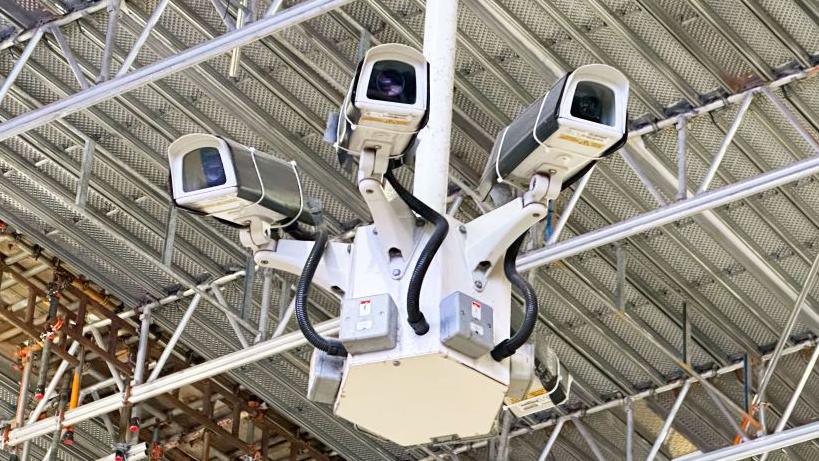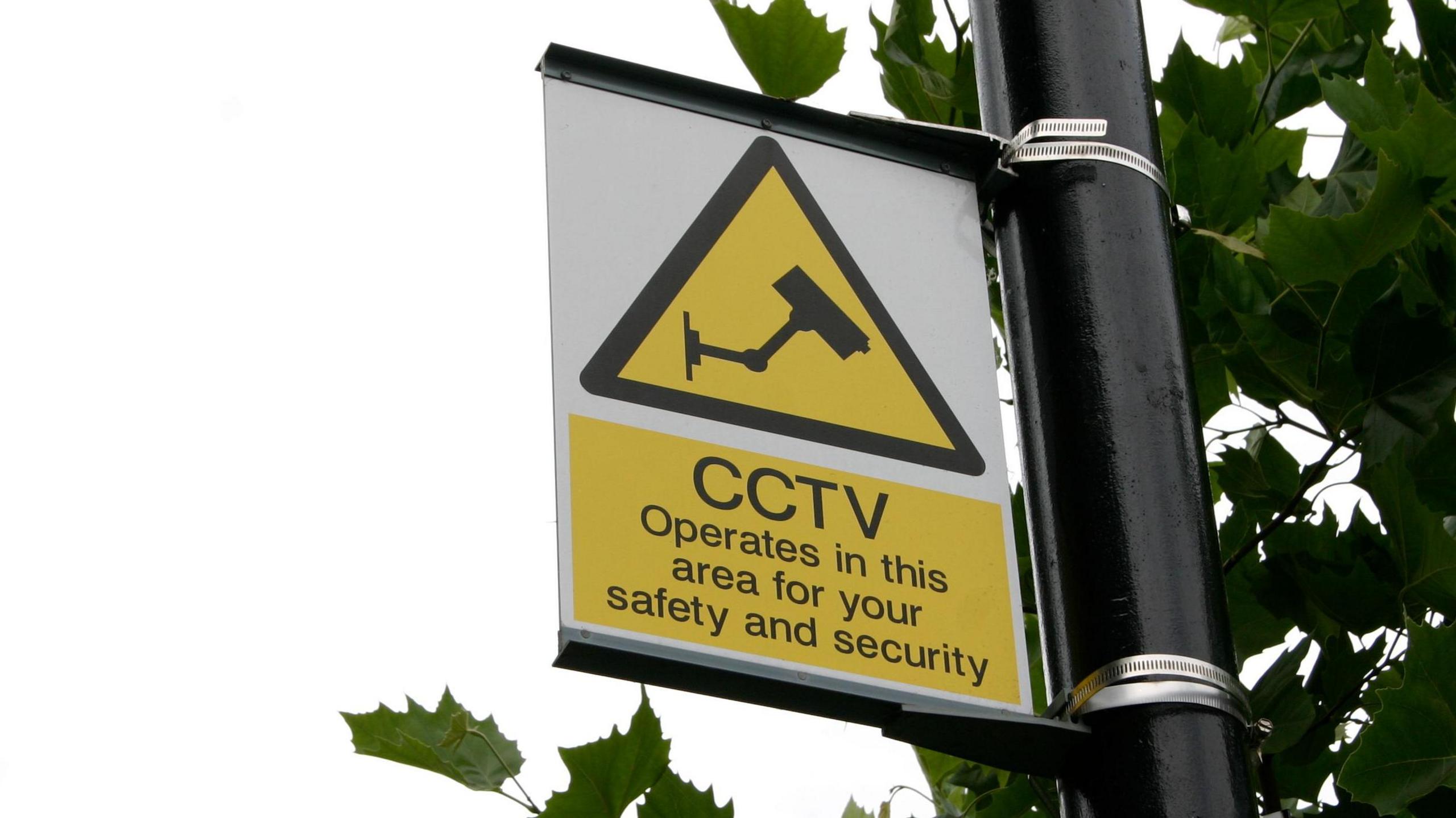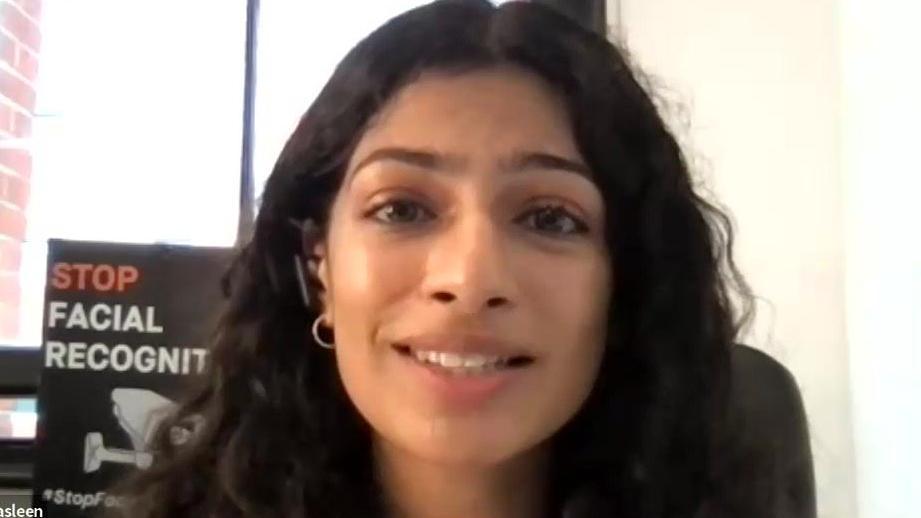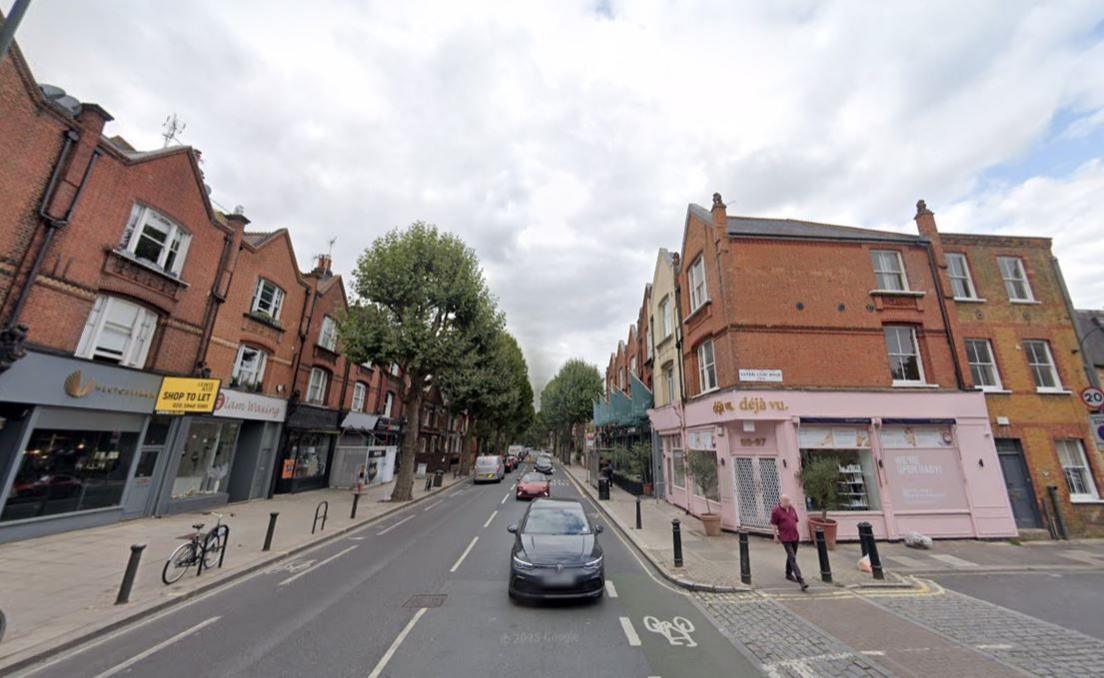Council to introduce facial recognition CCTV

Hammersmith and Fulham has more than 2,000 CCTV cameras in the borough
- Published
A west London borough has approved plans to introduce facial recognition and AI-assisted cameras into its CCTV infrastructure.
Hammersmith and Fulham Council's cabinet has approved more than £3m in funding to "enhance" the local authority's camera network.
The borough already has more cameras per person than anywhere else in the UK, with more than 2,000 currently operating.
Campaign group Big Brother Watch said the use of facial recognition proposed by the council amounted to "an unprecedented level of mass surveillance and it marks the end of privacy in the public space as we know it".

"Having better evidence" is the aim of the scheme, the council said
The live facial recognition cameras will be installed at crime hotspots and will "match faces against a defined police database in real time", the council said.
A report from the council's cabinet says two cameras are proposed at 10 locations, including outside Shepherd's Bush Market on Uxbridge Road and Wood Lane outside Westfield Shopping Centre.
However, introducing facial recognition cameras is "heavily contingent on police support", though the council's initial conversations have reportedly been positive.
The Metropolitan Police currently has one pilot site for static live facial recognition cameras in Croydon, analysis of which is expected this autumn.
There will also be AI capability for 500 cameras under Hammersmith and Fulham's (H&F) plans.
According to the report, AI will "enable more efficient video playback, automatic vehicle tracking and enable use of other tools that will make more effective use of the camera system", increasing CCTV operator efficiency and response times.
The report states: "Importantly, this will enable Retrospective Facial Recognition (RFR) across H&F's camera network, allowing CCTV footage to be automatically searched to efficiently track the routes taken by criminals across the borough."
The cabinet paper also recommended drones be introduced as an "enforcement aid", subject to approval from the Civil Aviation Authority.
'I love the idea'
One local resident expressed concerns about the council's plan.
Annie, 35, told BBC London: "My issue is that cameras feel like an after-the-fact issue, and so actually, they don't make me feel safer.
"They make me feel like maybe if something was to happen, it's more likely someone would be caught, but I'd rather them do preventative things instead."
But Liah Opah, 19, said she was "really happy" about the plans for facial recognition cameras in Hammersmith and Fulham.
"I think it's a good idea to easily be able to identify people who commit crimes or even doing unsafe and dangerous things around the station and around areas.
"I also really love the idea of them adding live facial recognition technology."
She also said that if there was a crime or other incident "it'd be really easy to identify everyone or group of people and if there's a serious investigation then it would be really quick to identify them".
"It will help reassure citizens like me who feel unsafe walking around the streets of Hammersmith and Fulham," she added.

Jasleen Chaggar from Big Brother Watch said the council was using facial recognition without safeguards
Jasleen Chaggar, legal and policy officer at Big Brother Watch, told BBC London: "The council are really throwing the kitchen sink at their residents with these plans, with very little regard to their fundamental rights or freedoms.
"Not only do they want to subject their residents to 24-hour real-time identity checks through live facial recognition, they also want to capture that footage of them going about their everyday lives in order to review their movements and behaviours after the fact."
She added: "There is no framework that's been promised, there's no legislation, and there's an ongoing legal challenge.
"Will the council use this to monitor fly tippers or enforce parking fines? There are no rules in place... and the council are using this without safeguards."
'Consequences of austerity'
Stephen Cowan, the leader of Hammersmith and Fulham Council, told cabinet members at a meeting on Monday: "This council is pioneering the use of artificial intelligence to identify and recognise people who have committed crime or antisocial behaviour to a greater degree.
"As we know, the criminal justice system is broken. It has been broken for a long time.
"It's one of the many consequences of austerity, and as a consequence it is extremely difficult at times for the courts to get people taken through the courts.
"Having better evidence, having evidence that goes above and beyond, is just one of the things that we are aiming to do."
Listen to the best of BBC Radio London on Sounds and follow BBC London on Facebook, external, X, external and Instagram, external. Send your story ideas to hello.bbclondon@bbc.co.uk, external
- Published16 September

- Published30 March

- Published11 May
